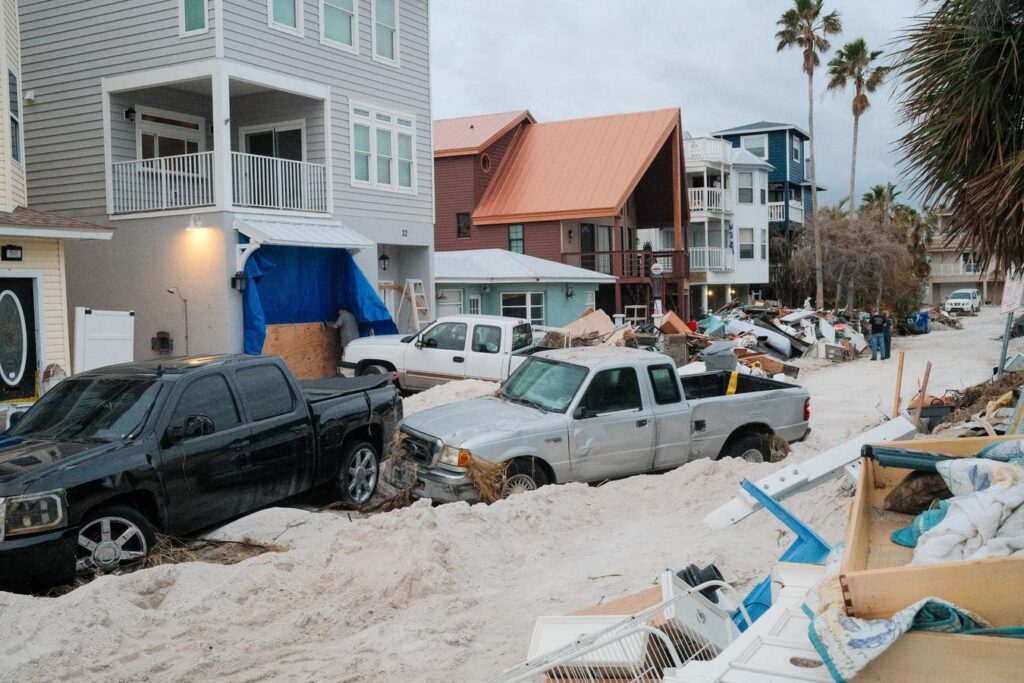Recent global events, from economic instability to natural disasters and pandemics, have underscored the importance of comprehensive planning for single family offices. These organizations, tasked with managing the wealth, legacy, and affairs of high-net-worth families, face unique challenges when navigating crises. Disasters—whether they be economic downturns, political upheavals, regulatory changes, or even family conflicts—can significantly impact the ability of family offices to meet their objectives. An object lesson for family offices is the devastation in Florida from Hurricane Helene quickly followed up by Hurricane Milton, one of the most powerful storms on record, especially for those that have offices or property in the disaster areas. By applying the principles of Disaster Theory, single family offices can create robust strategies for navigating both expected and unexpected challenges, ensuring that wealth, legacy, and family values endure for generations to come.
Understanding Disaster Theory for Single Family Offices
Traditionally, Disaster Theory has been used to help organizations manage responses to catastrophic events. However, the same principles can be adapted for single family offices to help them anticipate, respond to, and recover from various forms of disruptions. These disruptions are not limited to external shocks like economic crises or regulatory changes, but also include internal challenges such as generational transitions, family disputes, or leadership transitions.
Learning from the Past: Identifying Hazards and Mitigating Risks
A core tenet of Disaster Theory is hazard identification. For single family offices, the risks they face are often as much about maintaining family harmony and values as they are about managing financial and regulatory risks. Key areas of vulnerability might include:
- Succession Failures: A failure to plan for smooth leadership transitions can lead to family disputes and financial mismanagement.
- Concentration of Wealth: Over-concentration in a single asset class, industry, or geography can expose the family to significant risk during downturns.
- Regulatory and Legal Changes: Family offices operating globally must remain vigilant to shifting regulatory frameworks that could impact wealth preservation strategies, such as changes in tax law or cross-border regulations.
- Family Conflicts: Emotional entanglements within families can severely disrupt decision-making and governance, especially when issues of control or legacy come into play.
By understanding the hazards that have threatened similar organizations in the past, family offices can better prepare for the future.
In the face of these risks, single family offices must take a proactive approach by implementing mitigation strategies that align with both family goals and financial realities. Disaster Theory emphasizes the need for structures and systems that allow for adaptability and resilience:
- Governance Structures: Clear, formal governance structures are essential in separating family dynamics from business operations. This helps prevent emotional decision-making from overriding long-term financial strategy.
- Diversification of Investments: Mitigating financial risk through diversification across asset classes, industries, and geographies can shield the family from sector-specific downturns or geopolitical risks.
- Succession Planning: Developing and communicating a transparent succession plan ensures stability across generations, reducing uncertainty and conflict.
- Scenario Planning and Stress Testing: Preparing for different economic or political scenarios through stress testing of portfolios can help family offices respond to unforeseen crises more effectively.
Adapting to the Present: Response and Recovery During Crises
Disaster Theory also highlights the importance of decisive action during crises. For single family offices, this means not only managing the immediate financial implications of a disaster but also addressing the emotional and relational dimensions of the family. Key response mechanisms include:
- Crisis Management Teams: Family offices can benefit from having designated crisis management teams that can swiftly implement recovery strategies during critical times.
- Flexible Decision-Making: The ability to pivot and adapt during a crisis—whether by reallocating assets, liquidating non-performing investments, or taking advantage of market opportunities—can prevent long-term damage.
- Communication Protocols: Clear and consistent communication with family members is crucial to maintaining unity and trust during periods of instability.
Recovery, in the context of family offices, isn’t just about restoring financial health. It’s also about ensuring that family relationships, legacy, and long-term goals remain intact. Recovery should focus on:
- Strengthening Family Cohesion: Crises often present opportunities to strengthen family bonds and redefine shared goals.
- Reassessing Investment and Governance Structures: Emerging from a crisis may require significant changes to investment strategies or governance structures to prevent similar vulnerabilities in the future.
Anticipating the Future: Building Resilience Capacity
Building long-term resilience is essential for family offices. Disaster Theory emphasizes the importance of resilience through continuous adaptation and planning for the future. Single family offices can build this resilience by:
- Integrating Family Values into Business Strategy: Aligning the family’s wealth management strategies with its values can foster unity and long-term commitment across generations.
- Adaptive Planning: Using scenario planning to anticipate future challenges—from regulatory shifts to market disruptions—can give family offices a competitive edge in a rapidly changing world.
- Emphasizing Socioemotional Wealth: A focus on socioemotional wealth—the non-financial aspects of family businesses, such as legacy, emotional connection, and identity—can help families stay committed to long-term goals even in the face of adversity.
Conclusion
For single family offices, the principles of Disaster Theory offer a powerful framework for ensuring not just survival, but long-term success. By identifying risks, developing robust mitigation strategies, and building resilience, family offices can protect both their financial assets and their family legacy. The world of family wealth management is fraught with uncertainty, but with a well-crafted disaster plan, single family offices can emerge stronger from even the most disruptive events, ensuring that their legacies are preserved for generations to come.
Read the full article here

